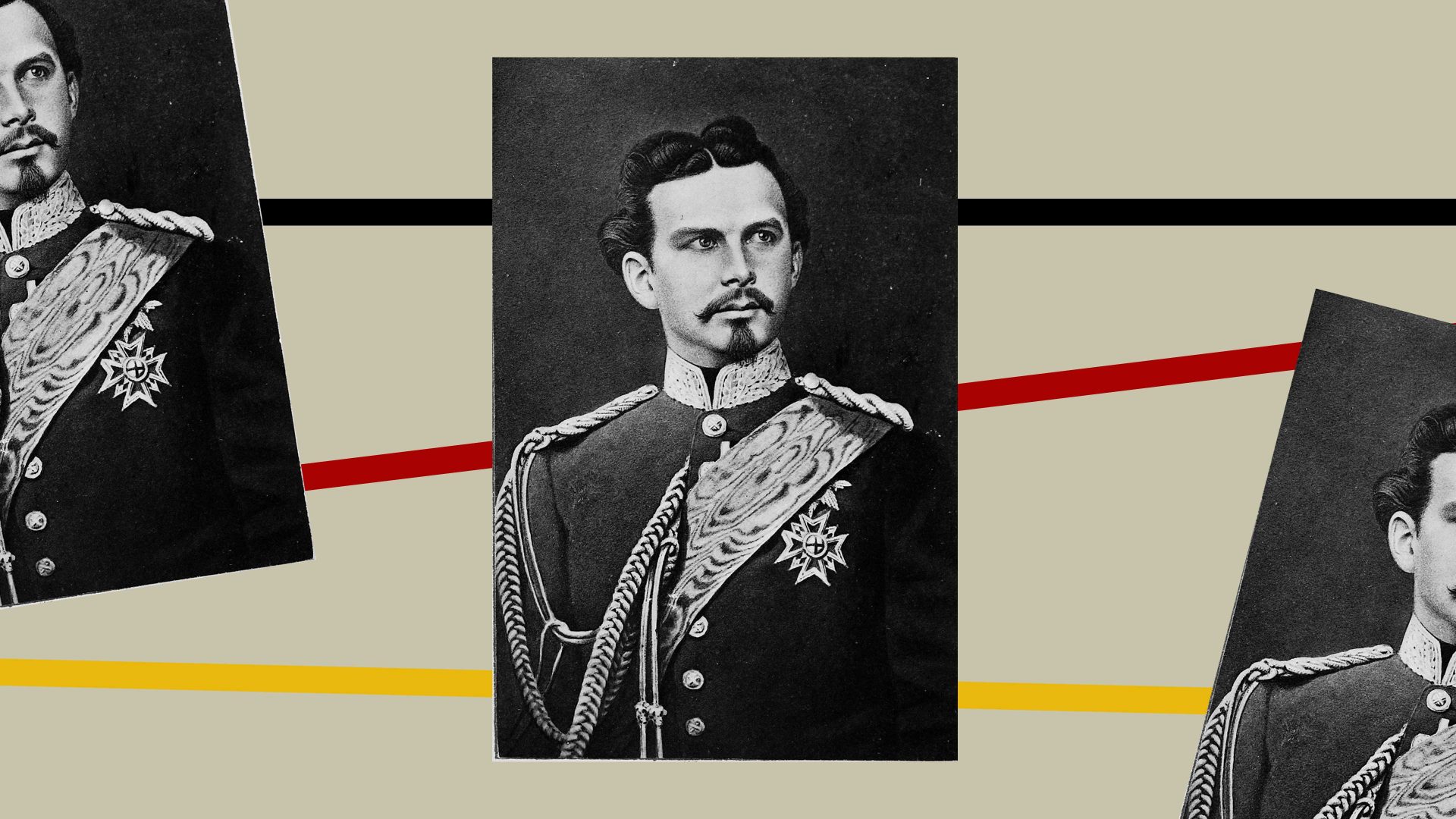It’s official: King Ludwig II of Bavaria – dreamer, aesthete, and mythical monarch – is finally getting the international recognition he deserves – from Unesco, no less. The organisation added his flamboyant fantasy castles to the prestigious World Heritage list.
About time, really. The Bavarian administration had campaigned tirelessly for 25 years to get there, despite scepticism as to whether Ludwig’s late 19th-century royal palaces were truly of universal value.
Outside Bavaria, even Germans dismiss his imitation castles as kitsch. But the 1.7 million tourists who visited them in 2024 clearly think otherwise.
Neuschwanstein, the most famous of the trio, is built like a medieval knight’s castle – a Märchenschloss (fairytale palace). It’s perched dramatically on a hilltop and it inspired Walt Disney’s logo and theme park castles. Even if you haven’t been, you’ve seen it – perhaps in Chitty Chitty Bang Bang, which was partly filmed there.
If Neuschwanstein is a nod to the Middle Ages, Herrenchiemsee is a love letter to absolutism. Set on an island in Lake Chiemsee, south-east of Munich, it is a near-replica of Versailles, a tribute to Ludwig’s namesake Louis XIV. Armies of servants were needed to light the 33 chandeliers in the Hall of Mirrors, but Ludwig, ever the innovator, added his own touch: an artificial moon in his bedroom.
Linderhof, the smallest and only palace Ludwig lived to see completed, was his private hideaway in the Alps. It’s a Rococo pocket-Versailles, surrounded by extravagance: a Moorish kiosk, a Moroccan house, and the artificial Venus Grotto with a waterfall, electrically illuminated by 24 dynamos – the world’s first permanently installed power station.
So who was this king, who – being Bavarian – stands as the prototypical anti-Prussian (although he corresponded with Bismarck on very friendly terms)? An eccentric, to say the least, and a larger than life figure in German history.
Suggested Reading


The House of Hohenzollern, a dynasty fit for a Netflix drama
Crowned in 1864, aged only 18, after the sudden death of his father Maximilian, he entered office unprepared, but developed a deep knowledge of state and church law.
He had never been militarily minded and left war policy largely to his ministers. Contrary to widespread opinion, however, as a constitutional monarch he carried out his duties diligently – in particular the daily signing of state papers and laws.
Envoys from Munich sometimes had difficulty finding him, as Ludwig, a keen mountaineer, frequently sought alpine solitude, but a portable telegraph was always nearby so that he could be reached.
His true passion, however, was the arts. And his legacy rests on being the most prominent cultural benefactor of his century. He gave Richard Wagner a house in Munich and bailed out the indebted composer with 170,000 guilders (£3m today) in 1864. Wagner used his windfall to finance the Ring of the Nibelung.
Without the king’s private loan of 100,000 Thaler (£2m), the famous Bayreuth festival house might never have been completed. So it’s safe to say that we partly have Ludwig to thank for the Ride of the Valkyries.
Despite his deep admiration and friendship for Wagner, Ludwig drew the line at his antisemitism. While Wagner demanded Jewish maestro Hermann Levi be baptised before conducting the premier of Parsifal, Ludwig insisted Levi take the baton – baptism or not. In 1882, he also ensured land was set aside for a new main synagogue in central Munich.
But while Ludwig kept rescuing Wagner, his own finances unravelled. His ever more expensive construction plans alarmed his ministers as much as the king’s retreat from public life and his erratic behaviour. Ludwig slept by day and rode sleighs by night.
In June 1886, the government had him declared insane and deposed him. Days later, Ludwig and his physician – who had supported the diagnosis – went for an evening walk along Lake Starnberg.
Their bodies were found hours later, floating in the shallow water. The official cause: drowning. But rumours of suicide and murder persist.
Modern historians doubt the “mad king“ label. The psychiatric report, they argue, doesn’t hold up. Instead, compiled sources point towards Ludwig’s inner conflicts, such as a social phobia combined with shame due to his homosexual tendencies. Some also see a “non-substance-related addiction”:
his obsession to design, sketch and build castles, in every detail, thereby detaching himself from a reality he didn’t quite fit.
Fairytale king Ludwig didn’t live happily ever after. He died aged 40.
But his castles live on – as physical monuments to a singular imagination.




